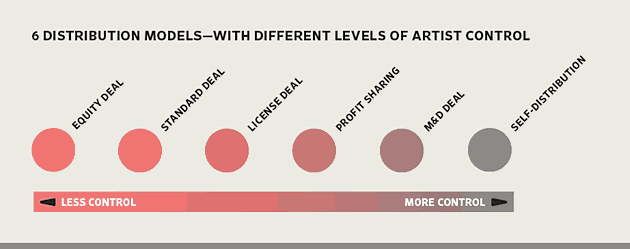
Distribution is, in my opinion, a dirty word. When you start out in the music industry, all you care about is your distribution deal. You believe that without it, no one will take you seriously - and you will never sell any records.
Last autumn, our CD distributor Amato went bankrupt. Months of hard work on promoting the new Sara Berg album went down the drain. Our stock is still sitting in their warehouse, held up in legal wranglings. Why did this happen? Amato was one of the largest independent distributors in Europe. Well, some dinosaurs with outdated methods of selling music ran up debts and the company sank. Many of Amato's labels will never see their past six months sales, and will never recover the debt that the distributor left them.
The doom and gloom that hangs over the music industry is beginning to tire everyone - not just those of us that are confronted with it daily. All the boys in suits that run the show are scared - their old business model isn't working anymore. They want to keep people buying CDs because the supply chain - from manufacturing, to distribution, to retail - is also controlled by them. This is one of the reasons why they hate downloads so much.
Control is something that is traditionally taken away from artists. Once you sign a deal, your art and everything else that supports it belongs to the corporation that controls you. The ethos behind Gaymonkey has always been to give the artist complete freedom to create what they want, with the belief that there will be an audience for brilliant electronic pop music.
Even distributors feel like they should have some of this control - they decide how and when your music will get in stores, and even like to share their opinions on the music with you. If they don't personally like it, they will make less of an effort to sell it to the stores.
With no physical distributor, labels are forced to think differently. Which is a great thing for music.
David Byrne thinks so too - check out his brilliant article from Wired magazine here.

No comments:
Post a Comment